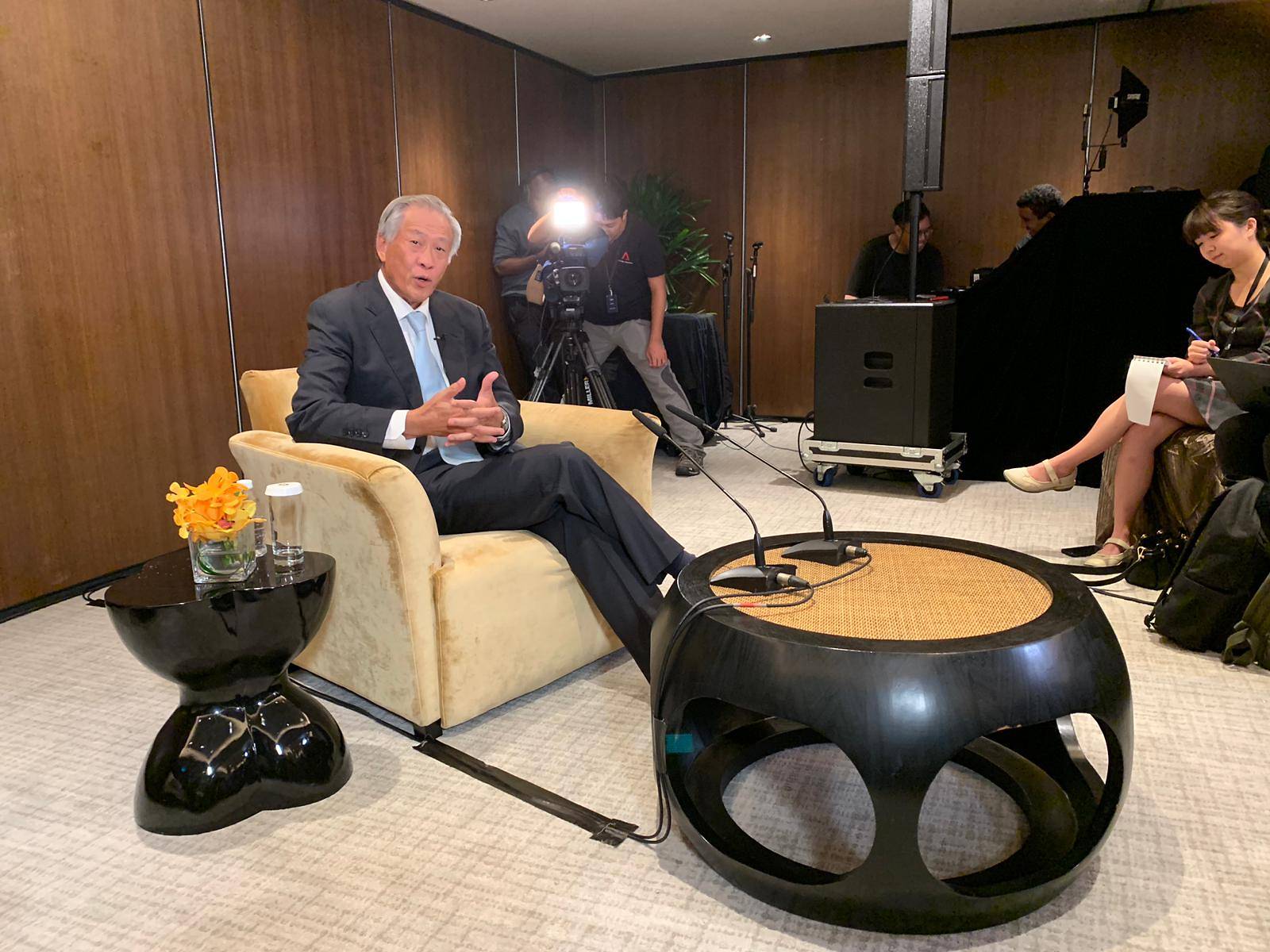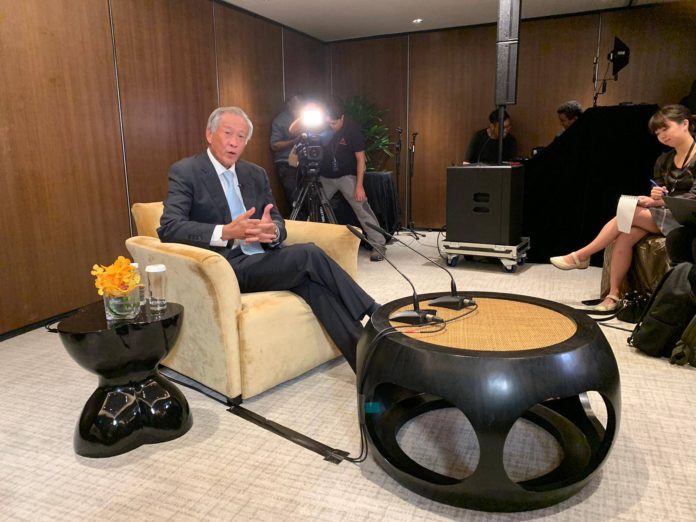SINGAPORE: Defence Minister Ng Eng Hen has said the US and China should offer “moral justification” for countries to accept their dominance in Asia, warning of a reduction in this acceptance if their interests go against the collective good.
“The challenge for both the US and China, amid their bilateral struggle as dominant powers in Asia, is to offer that inclusive and over-arching moral justification for acceptance by all countries, big and small, of their dominance beyond military might,” Dr Ng said during a speech at the Shangri-La Dialogue on Sunday (Jun 2).
This comes after Acting US Secretary of Defense Patrick Shanahan and Chinese Minister for National Defense Wei Fenghe both gave speeches at the dialogue detailing their positions on the South China Sea.
In an apparent reference to China’s militarisation of the South China Sea, Mr Shanahan on Saturday said “artificial features in the global commons could become tollbooths, sovereignty could become the purview of the powerful”.
General Wei hit back in his speech on Sunday, stating that China had the right to build “limited defence facilities” for self-defence in its own territory, as he questioned the purpose of “certain countries” sending its warships and planes “all the way from afar”.
READ: China says trade war ‘has not made America great again’
Dr Ng noted that both countries cited security as the basis for their current positions, notably the US in trade and China in the South China Sea.
“But whatever the underlying motivations for either country, if America First or China’s rise is perceived to be lopsided against the national interests of other countries or the collective good, the acceptance of US’ or China’s dominance will be diminished,” he said.
Dr Ng said countries will hedge first in trade ties and “inevitably” in security alliances, highlighting the example of how 11 countries chose to proceed after the US pulled out of the Trans-Pacific Partnership (TPP).
“For the European Union (EU), if it perceives that the US’ terms for trade are too onerous to bear, it is not inconceivable that it might even increase its engagement with China or seek other partners, apart from the US,” he added.
READ: US-China face-off is not a ‘strategic inevitability’, says PM Lee Hsien Loong
TRADE TUSSLE
In an interview after his speech, Dr Ng said Singapore – as a country whose external trade is 3.5 times its GDP – has vested interests in upholding international trade.
“But beyond that, if you ask yourself what is the basis of stability that we’ve had post World War II, the reason … is you have, really, a spaghetti kind of arrangement between countries,” he added.
For instance, when the US imposed restrictions on the sale of parts to Huawei, it found that many US-based companies were affected, Dr Ng said.
“To us that interdependency is not only good economically, but good for security. Because if you’re so economically interdependent, then the price of conflict is very high,” he added.
“But if you are divided by a wall and insulated from some of the harm when you have conflict, then you think less.”

Defence Minister Ng Eng Hen addresses reporters during his round-up of the Shangri-La Dialogue 2019. (Photo: Aqil Haziq Mahmud)
SOUTH CHINA SEA
As for ownership claims and disputes in the South China Sea, Dr Ng said countries in the region were working on the Code Of Conduct as the “focus activity” to deal with the differences.
“There are countries that claim and dispute on claims in the South China Sea, but it is also a recognition that it is an international waterway,” he said.
And when it comes to the US presence in the region, Dr Ng said “it’s not really up to us or anyone else to decide”.
“The US has said it will stay and I don’t see anyone disagreeing, or even if you disagree, to changing that fait accompli,” he said.
READ: Singapore, US reaffirm bilateral defence relations, agree to renew MOU
ASEAN countries also welcome the US presence, Dr Ng said, noting that they had met Mr Shanahan at the dialogue to discuss how to increase interaction.
“The reason for that acceptance is at the end of the day, the US presence has proven itself as a stabilising force,” he added.
“Most would agree in the main that the US presence has provided for stability which then allowed our individual economies and the region to grow.”
ULTIMATE LOSERS’ GAME
Still, Dr Ng cautioned against a situation where individual countries have to choose between the US or China.
“That will be the ultimate losers’ game and a race to diminishing benefits for all concerned,” he said in his speech.
Dr Ng said maintaining stability required “openness, interconnectivity, mutual dependencies, and a willingness to listen, to accommodate, to make changes for the collective good”.
“If we can stick to that, then I think there is a chance that the next generation will continue to be stable and our people will be safe and prosper,” he added.





